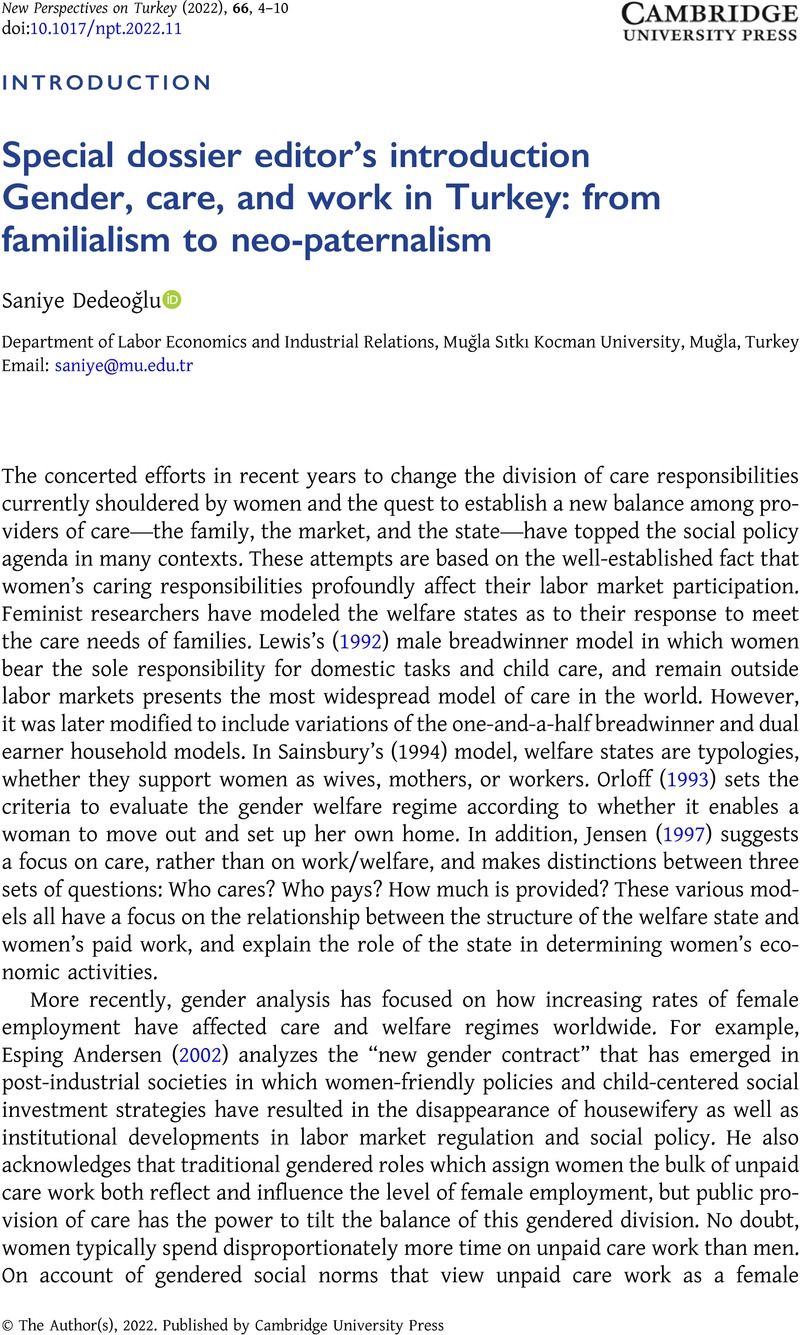Crossref Citations
This article has been cited by the following publications. This list is generated based on data provided by Crossref.
Dedeoğlu, Saniye
and
Şahankaya Adar, Aslı
2022.
Caring Piously: New Institutionalisation of Childcare Services in Turkey.
Social Policy and Society,
p.
1.
Gökşen, Fatoş
Küçük, Bermal
Cöbek, Gözde
Bayram, Sidar
and
Cemalcılar, Zeynep
2023.
Cruel optimism of waiting: precarity experiences of young adults in Turkey.
Journal of Youth Studies,
p.
1.
Özsan, Gül
2024.
‘My shop, my self’: independent women shopkeepers and their empowerment struggles.
Turkish Studies,
Vol. 25,
Issue. 1,
p.
92.






